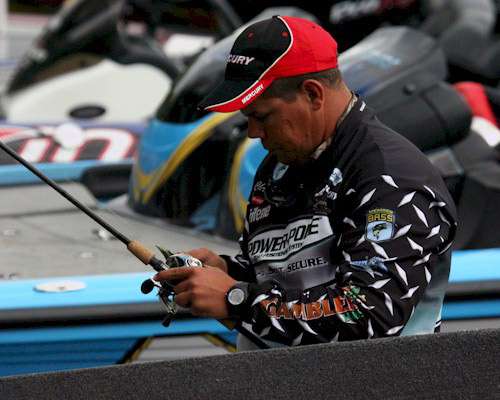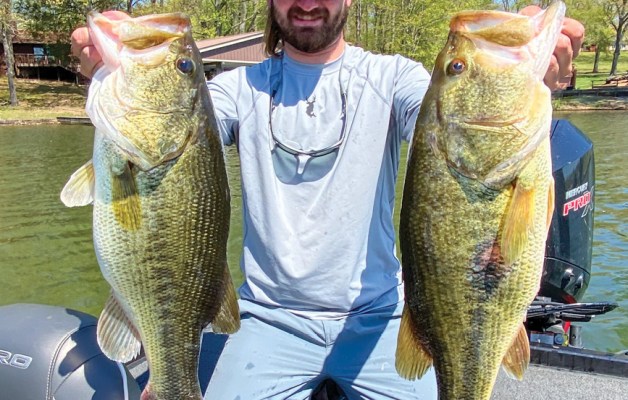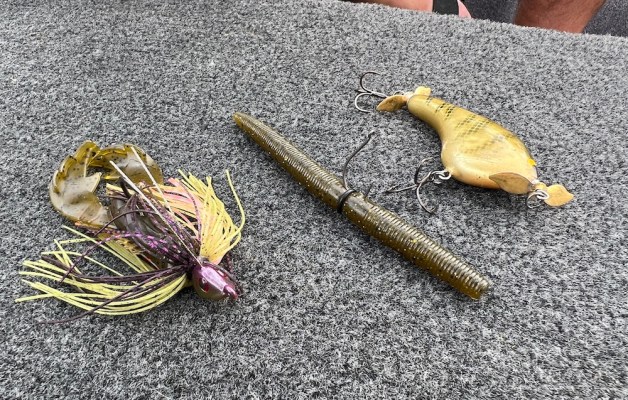
Every angler who has fished a bass tournament surely remembers that first morning. You were nervous and anxious about the unknown that lay just around the bend — uncertain of the outcome but convinced that you were living in the moment.
Then, of course, there are the mistakes that were made that first time — the things that can only be appreciated in hindsight. One thing is certain — lessons learned the hard way are never forgotten. Whether you are a tournament veteran or someone considering entering your first bass competition, you'll benefit from lessons to be learned from the experiences each Elite Series angler has lived through in his first tournament.
For Elite Series pro Chris Lane, that first tournament still stands out as a memory worthy of total recall because of the lessons he learned. "The very first tournament that I fished was a 200-boat Redman down on Lake Okeechobee," he reveals. "I fished behind Gary Simpson, who was a big-time outdoor writer in Gainesville, Fla., so I was all nerves." All nerves, maybe, but Lane admits that during that first tournament he was stung by the tournament bug. "I had a blast, but I didn't like being in the back of the boat," Lane says.
"The next year, I signed up as a boater and qualified for the regional in my first year. It was just an absolute thrill to go up there to weigh-in with a police escort, and it really got in my blood." The mistakes in that very first event were plentiful. Everything from poor line management resulting in multiple break-offs to poor choices in lure selection. But to Chris, it's nothing more than a part of the learning process. "I make mistakes in every tournament I fish to this very day," he admits.
"I'm still trying to key into the things that I can control and how to minimize bad decisions or costly mistakes. " Learning from your mistakes is a core element in successful bass fishing — be it for fun or for money. In either case, the key is to control the things that you can so that at the least the uncontrollable variables will be outpaced by preparation.
"I learned quickly that when you're fishing for a payday, you have to have all of your 'I's dotted and your 'T's crossed before you ever get in the boat," Lane points out.
"In a tournament day, there are so many things that are beyond your control — the weather, the traffic, and mechanical failures — so you have to control those things that you can in order to give yourself the best shot at being competitive." Aside from learning from his mistakes, Lane credits those early tournaments with teaching him to use his nervousness as an ally.
"There's no way to handle them really — being anxious about the day ahead of you is just what bass fishing does to someone who is passionate about it," Lane says. "You have to have your nerves working when you're tournament fishing; otherwise, you're not excited about it enough.
The thing is, though, you have to use them in a positive way and not let your nerves overshadow the importance of staying focused on what you're doing."
For all of the lessons that earlier tournaments and time on the water have taught Lane about bass behavior and boat control, the single most important lesson learned has been the element of chance and how to ensure the odds are in his favor. "It all starts with making sure that every single piece of your equipment and tackle is in good shape," he allows.
"Go through it three or four times if you have to before the tournament starts so that you know that it's just right. The absolute worst thing that can happen to you is for your equipment to not be ready when you need to depend on it most. "A bass is not going to wait for you to re-string a rod or fix the collar on a spinnerbait. It has to be right the first time you pick it up."
(Provided by Z3 Media)




